 A lack of confidence can affect every area of your life, from your job performance to your personal relationships.
A lack of confidence can affect every area of your life, from your job performance to your personal relationships.
In reality, how you perceive yourself has a powerful impact on how others treat you.
Some factors in bolstering self-confidence may be beyond your control, but there are some very tangible things that you can do as well. Using these tips will help you reach your full potential as a successful and confident person.
1. Dress confidently. Dress like the person you want to be and you’ll feel yourself become that person. When you look good, you’ll feel good. Now, this doesn’t mean that you have to go out and spend a fortune on clothes. It’s better to buy a few really nice pieces than a bunch of cheap ones.
2. Walk faster. People who walk confidently keep a brisk pace because they have things to do and places to be. Simply quickening your step will help you feel more confident.
3. Keep good posture. People can tell a lot about you by the way you carry yourself. If you have slumped shoulders and cannot look people in the eye, you’ll leave a negative impression on them. Keep your head up, make eye contact with others, and stand up straight and tall. You have nothing to hide.
4. Be grateful. Gratitude creates a state of peace in the body. A peaceful mind radiates confidence. Make a list of the things you appreciate about yourself and be grateful for your past successes. Tell those you love how much you appreciate them being in your life.
5. Compliment others. In addition to showing appreciation for what you have, it’s also important to show others your appreciation. If you think negatively about yourself, then you’ll have a tendency to criticize others. Break this habit by praising others on a daily basis. Seeing the best in others will bring out the best in you.
6. Give back. Contributing to the success of others will not only help you feel better about yourself, but karma will reward you in the end. What goes around comes around, right? Volunteer your time to help those in need or make a monetary contribution to your favorite local charity.
7. Don’t be afraid to speak up. Many people keep quiet for fear of saying something silly. Taking an active role in discussions will distinguish you as a leader amongst your peers. They will quickly recognize that you have confidence and plenty to offer.
8. Exercise regularly . If you work hard to create a better physical image, you’ll not only be healthier, but you’ll also have more energy. Both of these things will contribute to your self-confidence, as will the compliments you’ll receive.
9. Sit in the front row. Most of us have a tendency to try to blend into the back of the room somewhere. We don’t like being noticed. Confident people sit up front where they can take part in discussions without fear.
10. Take a chance and try something new. Learning a new hobby or activity will broaden your horizons and help you feel “alive.” Anytime you spend stretching your mind improves your overall self-confidence.
The more self-confidence you build in yourself, the more likely you’ll be to succeed. No matter what task you choose to conquer, you’ll do so with enthusiasm. Any setbacks you encounter won’t bother you because you’ll have the confidence necessary to continue.
Those who are insecure often find life to be a struggle, but with self-confidence, you can find it to be a joy.
Why suffer when you can soar!
 Rosemary Rosmarinus officinalis
Rosemary Rosmarinus officinalis



 A lack of confidence can affect every area of your life, from your job performance to your personal relationships.
A lack of confidence can affect every area of your life, from your job performance to your personal relationships.

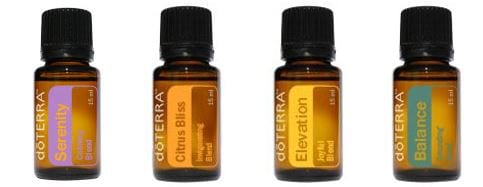 With around
With around ![7[1]](https://b575792.smushcdn.com/575792/wp-content/uploads/2016/09/71.jpg?lossy=1&strip=1&webp=1) dōTERRA’s
dōTERRA’s 